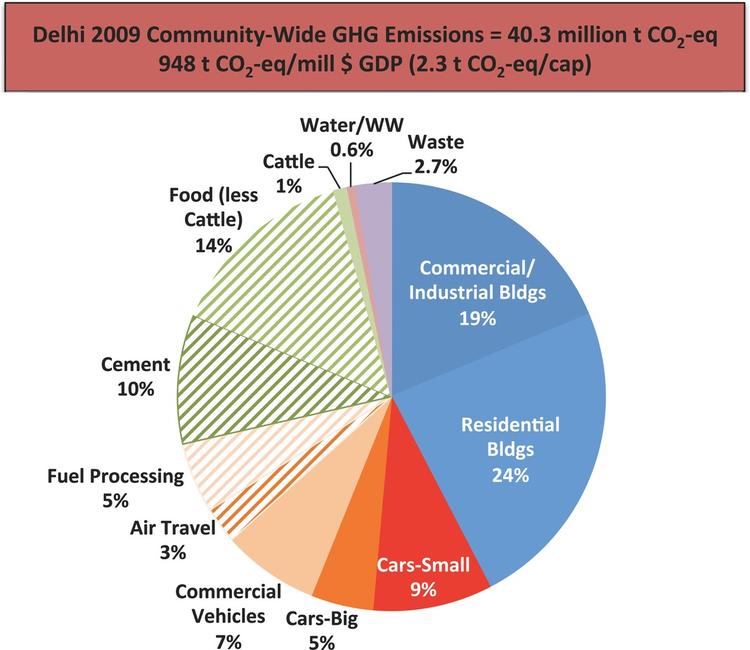
Implementing Trans-Boundary Infrastructure-Based Greenhouse Gas Accounting for Delhi, India: Data Availability and Methods
Type
Community-wide greenhouse gas (GHG) emissions accounting is confounded by the relatively small spatial size of cities compared to nations—due to which, energy use in essential infrastructures serving cities, such as commuter and airline transport, energy supply, water supply, wastewater infrastructures, and others, often occurs outside the boundaries of the cities using them. The trans-boundary infrastructure supply chain footprint (TBIF) GHG emissions accounting method, tested in eight U.S. cities, incorporates supply chain aspects of these trans-boundary infrastructures serving cities, and is akin to an expanded geographic GHG emissions inventory. This article shows the results from applying the TBIF method in the rapidly developing city of Delhi, India.

